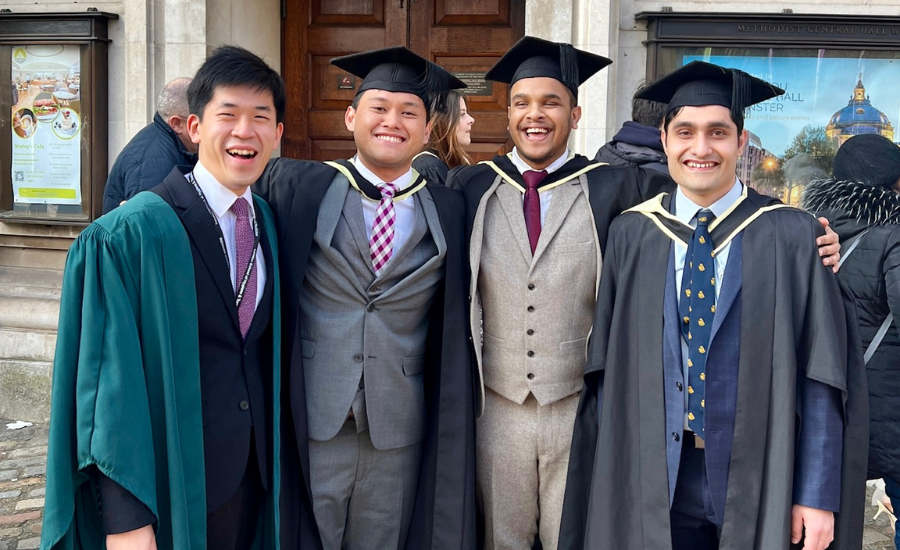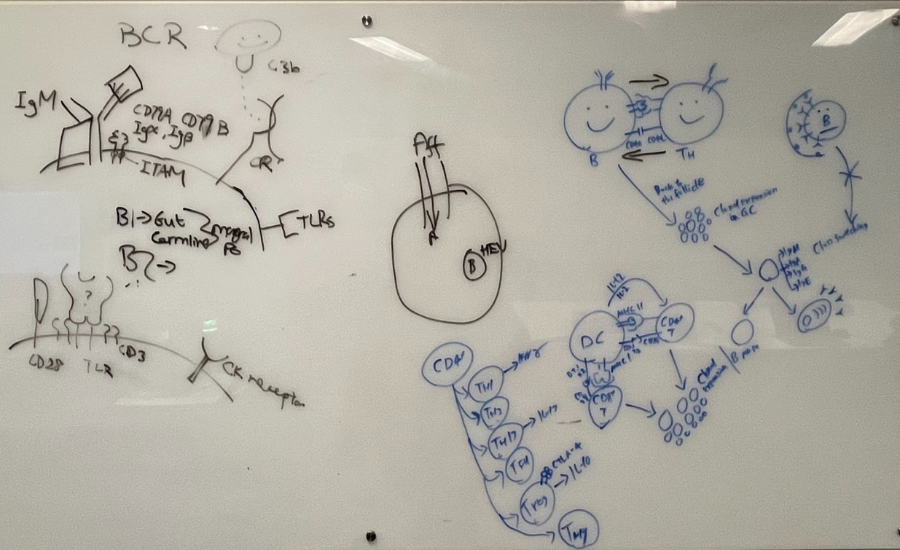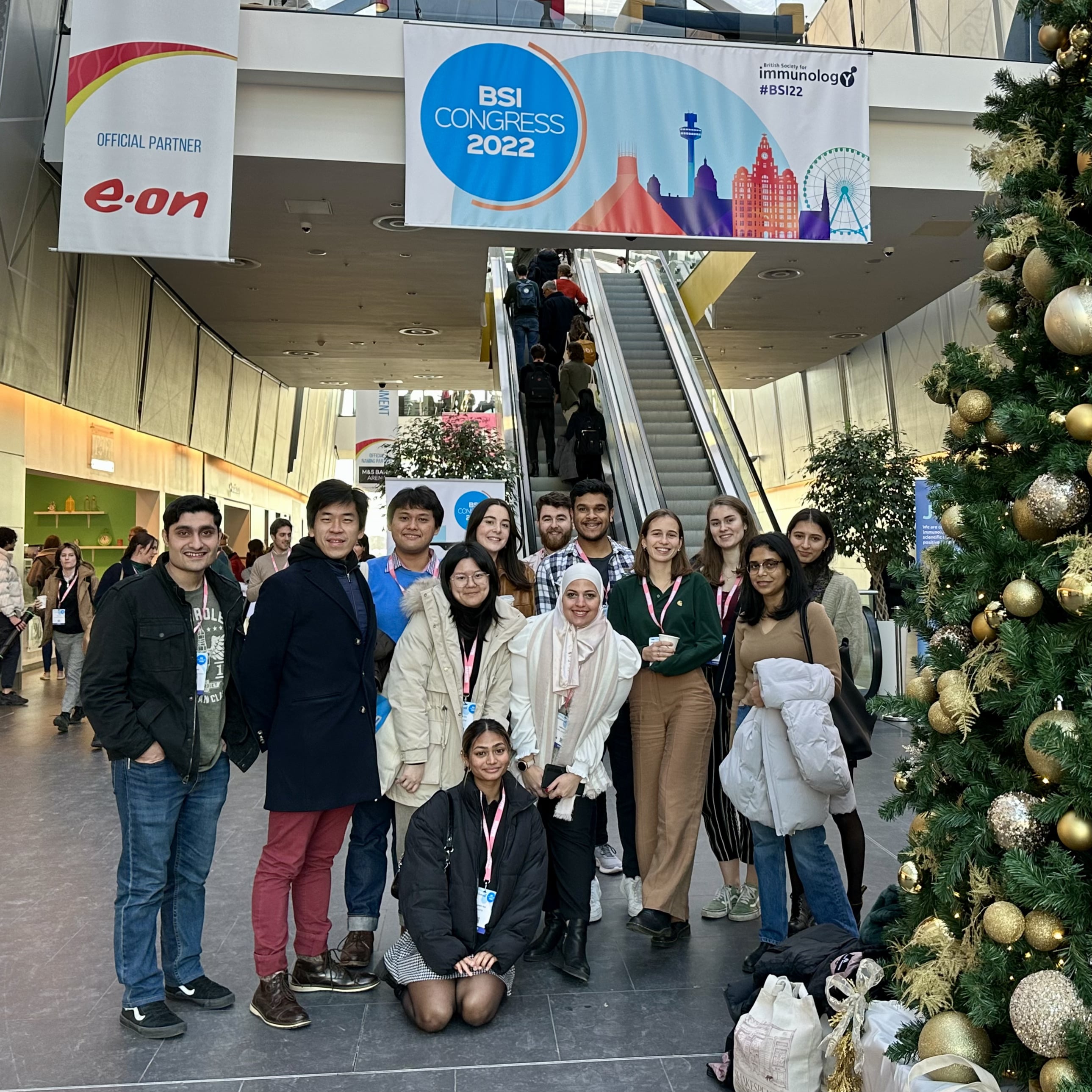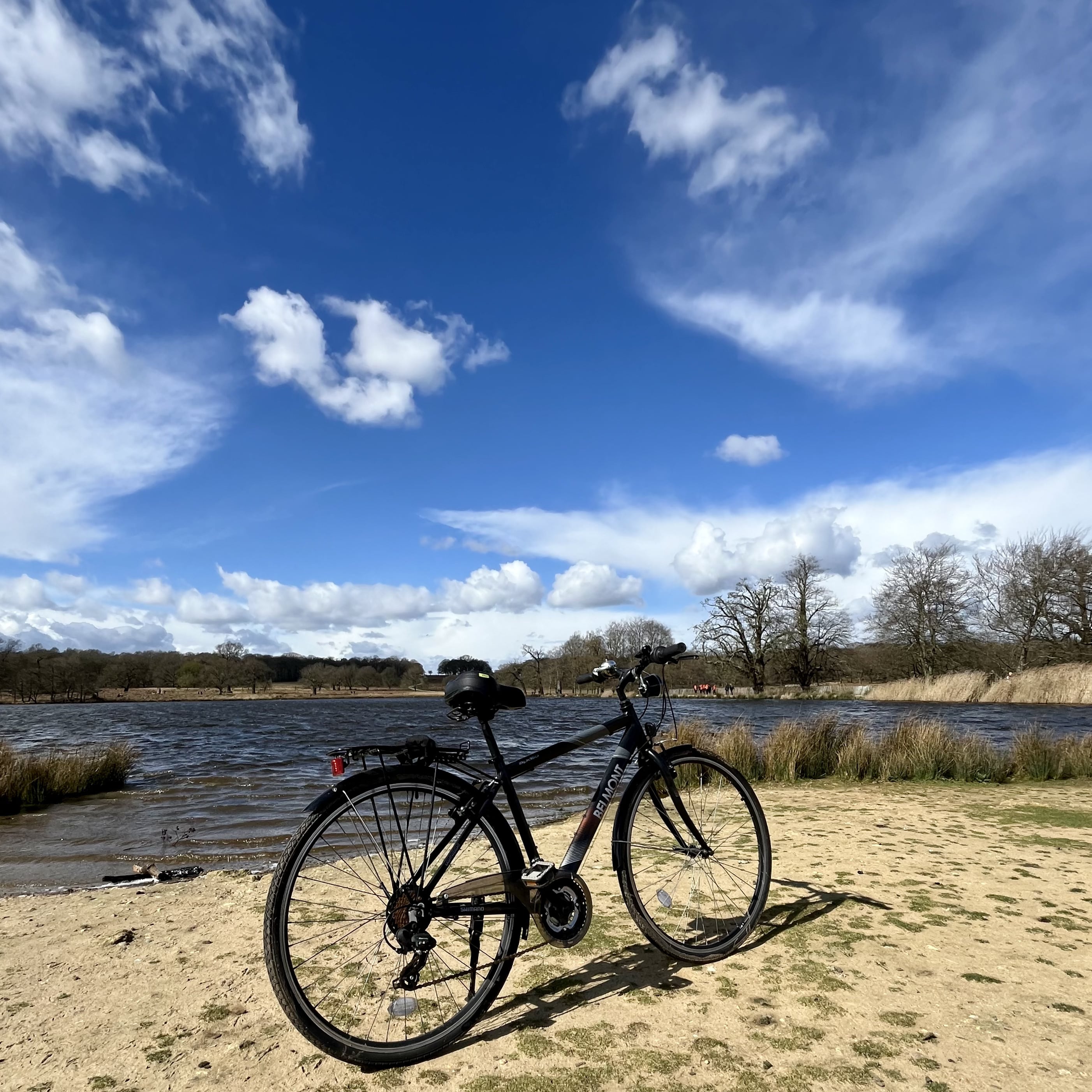Intensive but rewarding - Henry's story studying MSc Immunology of Infectious Diseases
16 January 2025 London School of Hygiene & Tropical Medicine London School of Hygiene & Tropical Medicine https://lshtm.ac.uk/themes/custom/lshtm/images/lshtm-logo-black.png
Henry (L) with his friends at LSHTM Graduations
Sitting by the lab bench, pipetting from here and there, and watching cells happily hanging out inside the broth has always been my dream job. Towards the end of my biomedical undergraduate degree, I found myself strongly interested in host-pathogen interactions and eager to explore the mechanisms of how our immune system is regulated and dysregulated. From my first taste of research during a short summer research scheme and my final year project on serology, parasitology, and evolutionary epidemiology in vector-borne neglected tropical diseases, I was determined to better equip myself with experimental design and project management skills in the field of immunology.
While other immunology postgraduate courses focus on areas beyond infection biology, the MSc Immunology of Infectious Diseases at LSHTM, which contextualises immunology through the lens of host-pathogen relationships, covers neglected tropical diseases and vaccine immunology, was my first preference without hesitation. LSHTM's status as a prestigious institution that produces high-impact research output further solidified my decision to pursue my career goals here.
Highlights of study experience during term time
It is overall an intensive yet rewarding course. You can expect to be at LSHTM from Monday to Friday, 9 am to 5 pm. Don't worry—you will have breaks between lectures. The course content was delivered in a well-structured flow, designed to be applied throughout the year. We started the academic year with lectures that consolidated textbook-level immunology knowledge (similar to undergraduate courses), which I found useful for building our foundational understanding - and helped us discuss the principal mechanisms that our immune system fights against but also dysregulated by different types of pathogens, towards the end of term 1.
There was also a series of practical sessions covering laboratory techniques and statistics that helped brush up my memories of these essential techniques for research. The formative assessment (a short laboratory report) was an opportunity for me to test my understanding and writing skills. The feedback helped to evaluate my strengths and weaknesses and better prepared me for summative assessments.
During my undergraduate which took place pretty much during the pandemic, I always wished to have a tighter bond with my classmates. The class size of the MSc Immunology of Infectious Diseases is usually small (around 15-20 students). Generally there is a strong sense of belonging, perhaps because we all have a love-hate relationship with immunology! It is amazing to be able to know about everyone beyond just their name. Forming a study group for revision was truly helpful in better understanding concepts and absorbing lecture contents. I still remember the nights of staying up late with my classmates and taking turns filling up a whiteboard with mind maps to prepare for Term 1 assessments!
My favourite modules that laid the foundation towards my summer project
Right after the exams on the first week of January, we entered Term 2 which I found particularly challenging as we explored a wider spectrum of immunology - most of which were the latest findings that sometimes contradicted textbook content. Nevertheless, I was personally fascinated by the most by the compulsory module titled "Advanced Immunology" that took place during the first five weeks of Term 2. This module introduced us to various cellular and molecular methodologies and statistical models that are in use for immunology research by encouraging us to critically study and discuss multiple research papers (around 20 in 5 weeks!), which I found particularly useful when reading papers for my summer project.
Additionally, the mode of teaching in this module - forming groups of different classmates for each group presentation - quickly strengthened the bonding between my classmates. There was a lot to go through, and it was very cool that our class, on top of revision sessions delivered by lecturers, organised a mock exam for the entire class to join in (even though it was not timetabled). Revising with classmates was so helpful for preparing and handling stress for frequent assessments in Term 2!
Vaccine immunology is an inspirational optional module in Term 3 that evaluates the strategy behind vaccine design, development, and deployment, together with case studies on vaccine controversies, vaccine economics across a wide panel of vaccines at different demographics offered me a comprehensive view that further contextualized immunology in the aspect of global health via a multidisciplinary approach. On one hand, there are multiple approaches to disease prevention and intervention but the uprising resistance to these tools developed in pathogens and vectors, and more extreme climate displacing millions of people annually, are just a few examples of global health threats in this increasingly globalised world. This could not emphasise the importance of translating immunological knowledge into accessible tools for a multidisciplinary approach that contributes towards one's health goals. I was thrilled when I learnt about my summer project on developing a novel approach to assay biomarkers.
Networking opportunities at LSHTM
I was quite worried about moving to London, as I didn’t know anyone in London at the start of the course. This changed on my first minute after registration – I came across 2 gents asking if I were doing immunology, and we became study buddies during our time at LSHTM. I have also befriended students doing other courses throughout the year. It was mind-opening when I heard stories from my friends doing other courses (many of them are studying MSc Public Health since they have a class size of over 100!) from various backgrounds – for example working at clinical trials, health advocacy, etc. settings.
There have been many networking opportunities throughout my time at LSHTM. The programme team invited several experts in their field to give us lectures on research to which they have dedicated their careers. They welcome questions and contact via email. Beyond lecture hours, there are events organized by LSHTM-based Centres (e.g., Malaria Centre, TB Centre, Vaccine Centre) and external bodies (e.g., British Society of Immunology, Royal Society of Tropical Medicine and Hygiene) available for meeting academic, industry, and public health advocate presenters. Moreover, LSHTM collaborating across multiple research units across the globe, has weekly public health-related (Global Health Lecture Series) seminars and infectious biology-themed Department of Infectious Diseases Seminar Series. Always learning something new from those seminars!
If I could do it differently, I would reach out to the career advisor earlier in the year when it is usually less busy. Thinking about careers after graduation can sometimes be daunting but I was lucky to have both consultants giving advice on more efficient job searches and applications and all-rounded preparations for amplitude tests and interviews.
After all those hard-working hours, balancing study with life is achievable in the MSc course. Our campus based in central London, a vibrant city that I have always wished to visit, did not disappoint me. I enjoy taking breaks by simply exploring around the campus, especially when there are a lot of iconic places just a few steps away. I once had a half-hour walk to St. Paul’s Cathedral after having lectures on a snowy day. The Thames is also a half-hour walk away, and it is perfect for a (sunny) afternoon without lectures! Watching fireworks with classmates at Bonfires night, dining out in Soho on Friday nights, and cycling with students from other courses at Richmond Park were also some memorable moments during my time at LSHTM.
Favourite things to do…
It is worth visiting and studying at different libraries within the University of London too. I found changing working space from time to time refreshing. Being able to access archives and study space at UCL and SOAS libraries is a big plus. Also, if you are a fan of Portland stone buildings or you have found a tall building next to LSHTM looking familiar from Christopher Nolan’s Batman or George Orwell’s 1984 novel… then visit the Senate House building and its library down the road from LSHTM is a must! Russell Square just behind the Senate House building, is my favourite spot for picnics and after-lunch walks. You will have access to the abovementioned libraries with your student ID card. Barbican Library, not far from St. Paul’s, might be another place you could visit (lovely collection of music scores there!) as part of your sightseeing tour outside study hours.
If you fancy, I promise you won’t find an identical corridor at the Keppel Street campus. Have an adventure, my dear - Don’t open those locked doors or alarmed fire exits, though! Hope you enjoy the brand-new Pumphandle Social too.
Before you go
Taking part as a student ambassador enriched my student experience at LSHTM. I was opened to a variety of opportunities in networking and sharing my experience with prospective students via in-person and online settings, supporting school-based events. I was so glad to have the unique opportunity to be appointed as a student panellist for reviewing teaching quality as a part of the internal quality assurance process. This allowed me to understand how the opinions of students are also being listened to at this institute, valuing the provision of high-quality education for future generations who are passionate about improving public health worldwide. Learn more about becoming a student ambassador!
- Discover MSc Immunology of Infectious Diseases.
- Contact Henry via our contact student & alumni ambassador page.
- Discover ways to study at LSHTM
- Read more from Henry: 5 reasons to study part time by split study at LSHTM.


